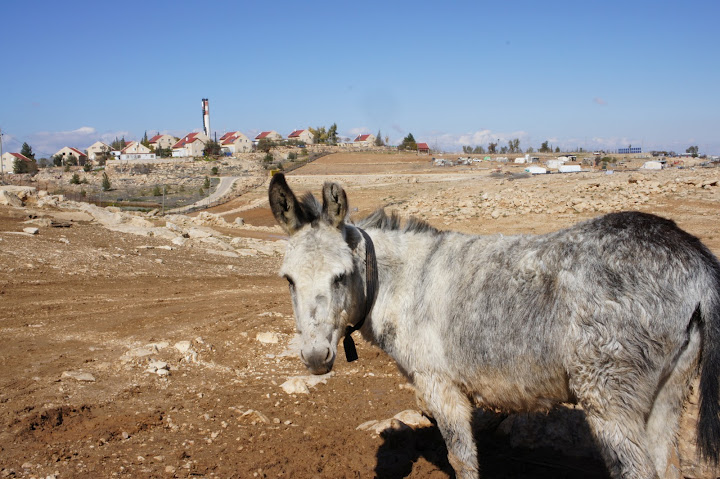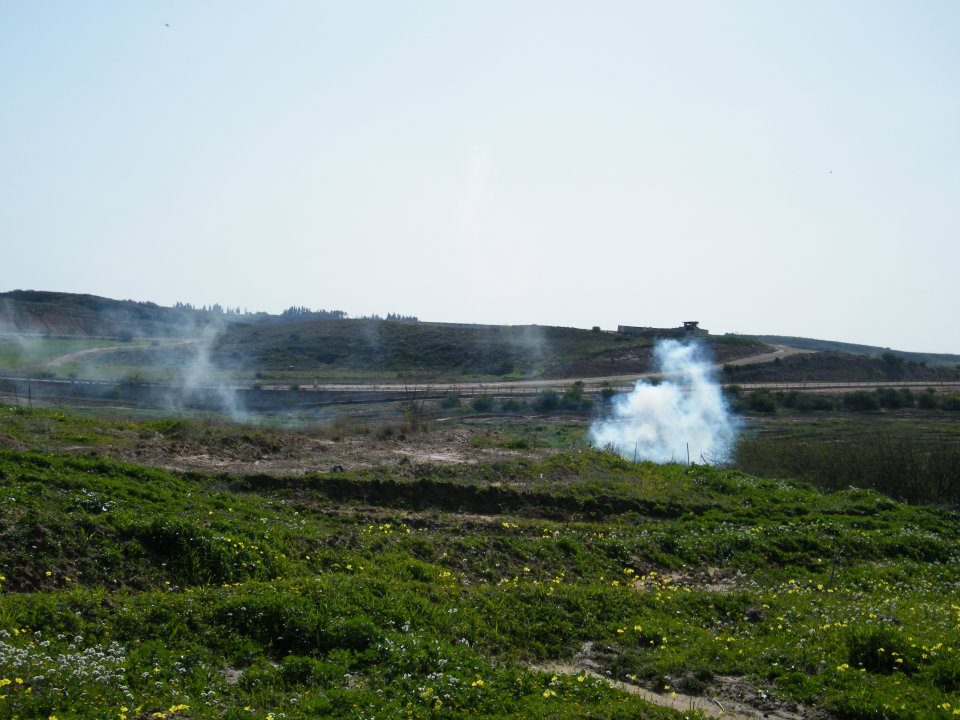-
“We die a little bit inside us each time”: 2 more homes demolished in Bedouin village of Umm Al Kheer
by Tom 26 January 2012 | International Solidarity Movement, West Bank Israel demolished the homes of two families in the Bedouin village of Um Al-Kheer in the South Hebron Hills last week, on Wednesday January 25th. The demolition team arrived with a bulldozer at 9:00 in the morning together Israeli soldiers and police. Villagers reported […]
-
Beit Hanoun demonstration under fire
by Nathan Stuckey 25 January 2012 | International Solidarity Movement, Gaza Strip Gaza was treated to a strange new sight today, not really new, but something that has not been seen in Gaza in a long time: tear gas. In Gaza protests are not smashed with tear gas and clubs like in the West Bank, […]
-
In Palestine, to exist is to resist
by Melinda Tuhus 24 January 2012 | In These Times Behind the headlines, Palestinians are using nonviolent direct action to protest the status quo. WEST BANK, PALESTINE – On November 15, Mazin Qumsiyeh and other Palestinian activists boarded public bus number 148, an Israelis-only bus that normally takes Jews from the Israeli West Bank settlement […]
Action Alert An Nabi Saleh Apartheid Wall Arrests BDS Bethlehem Bil'in Cast Lead Demonstration Denial of Entry Ethnic Cleansing Farmers Gaza Global Actions Hebron House Demolition International law Israeli Army Jerusalem Live Ammunition Nablus Ni'lin Prisoner Ramallah Rubber-coated steel bullets Settlement Settlers Settler violence Tear-Gas Canister Video


